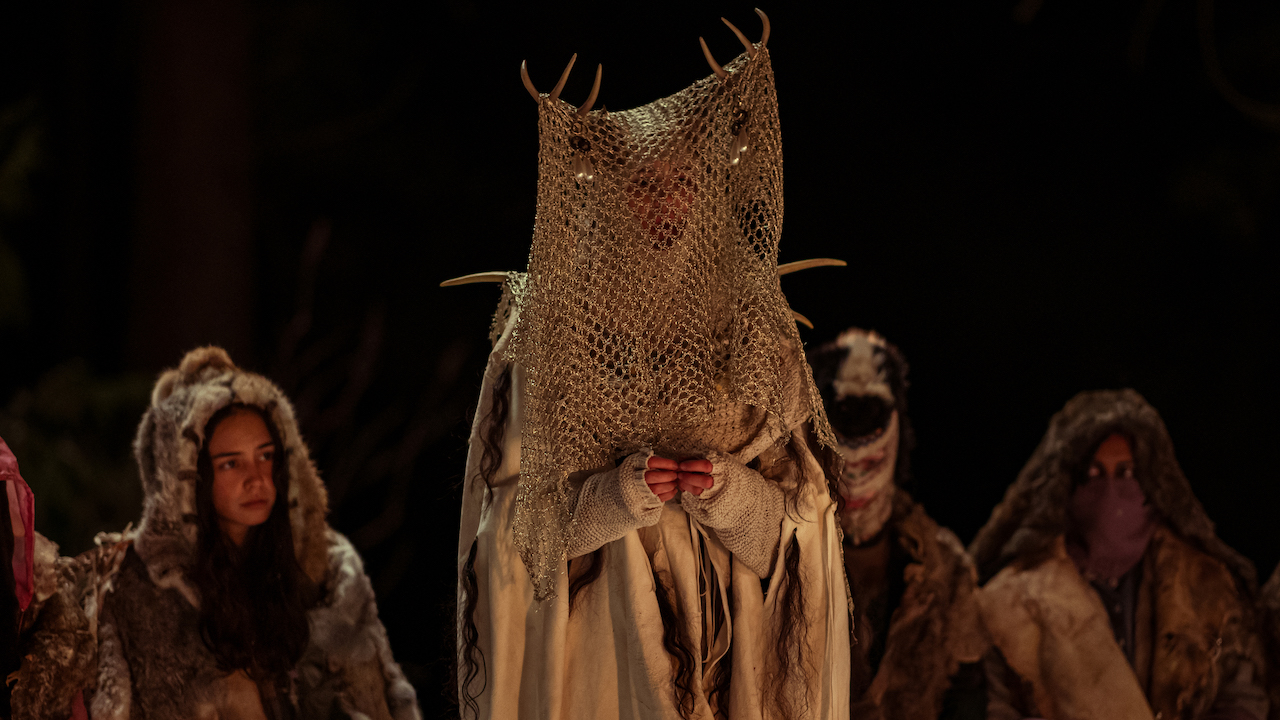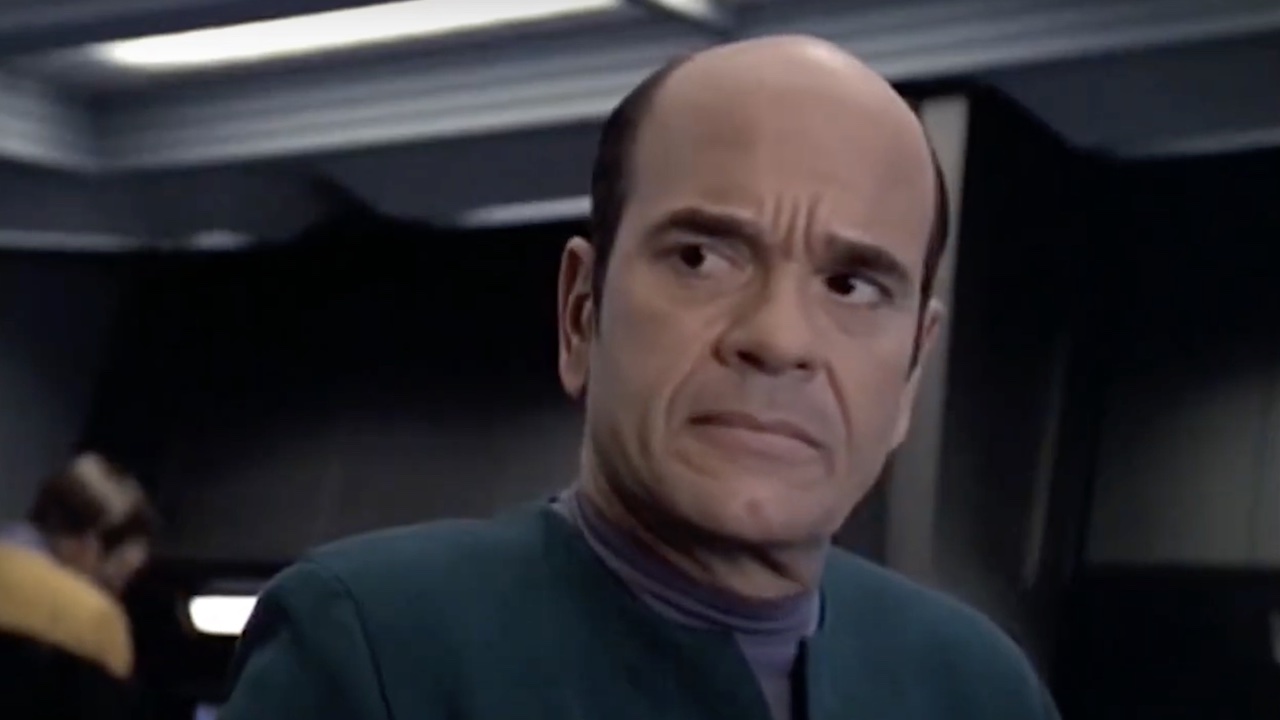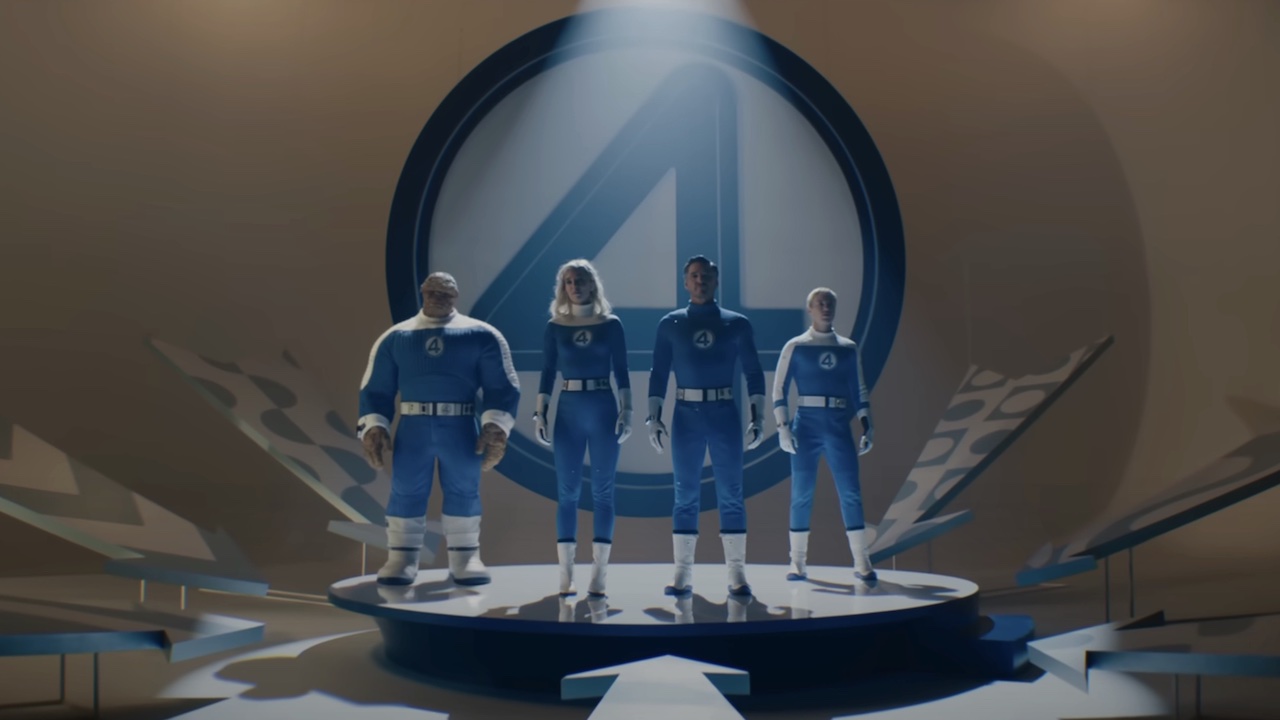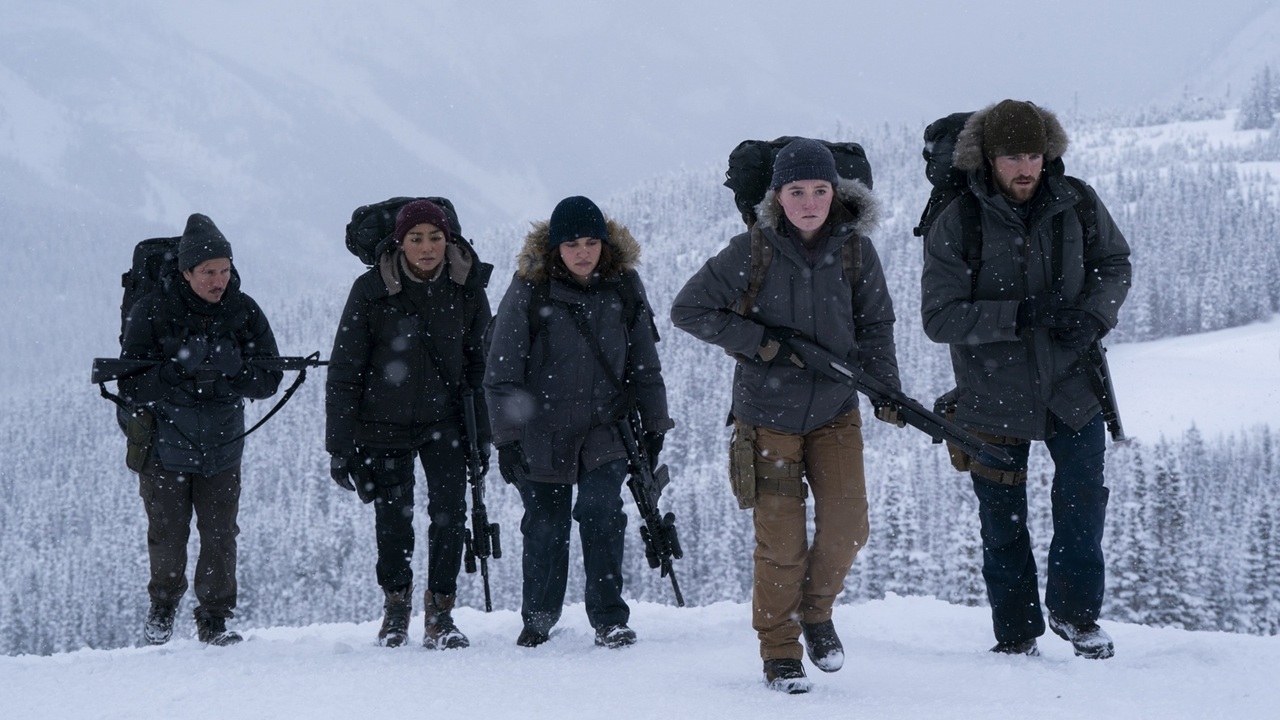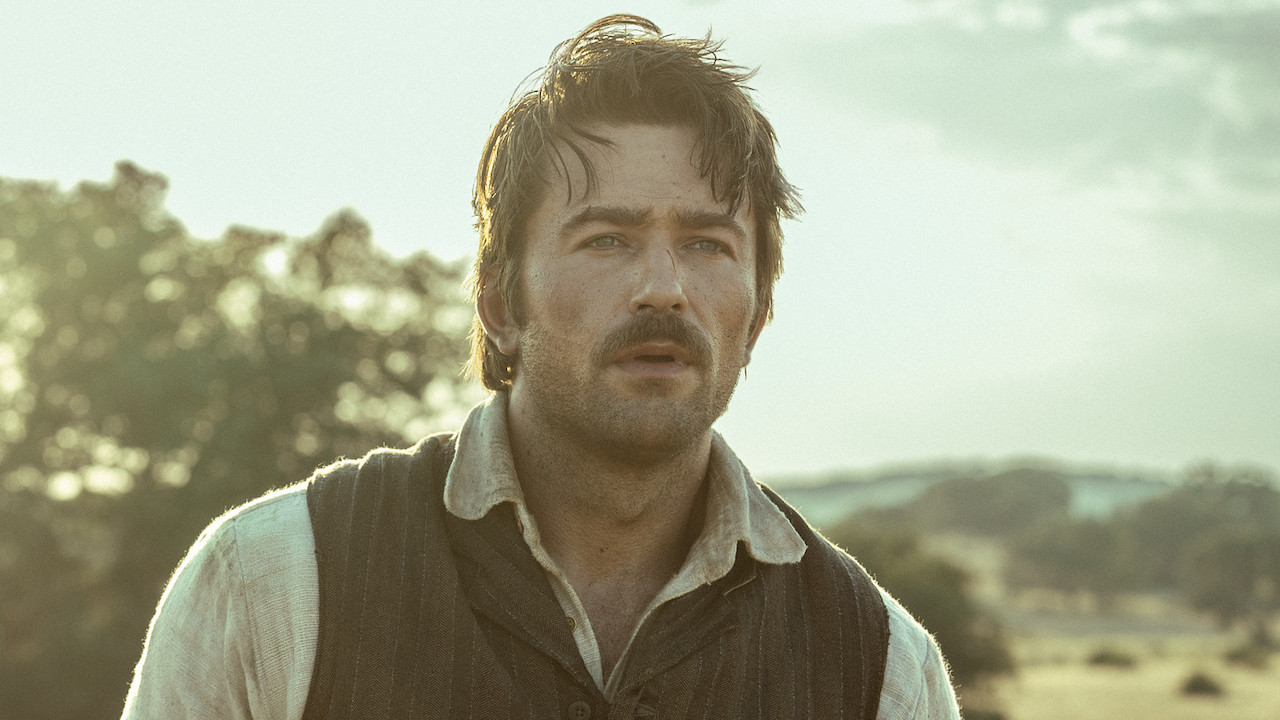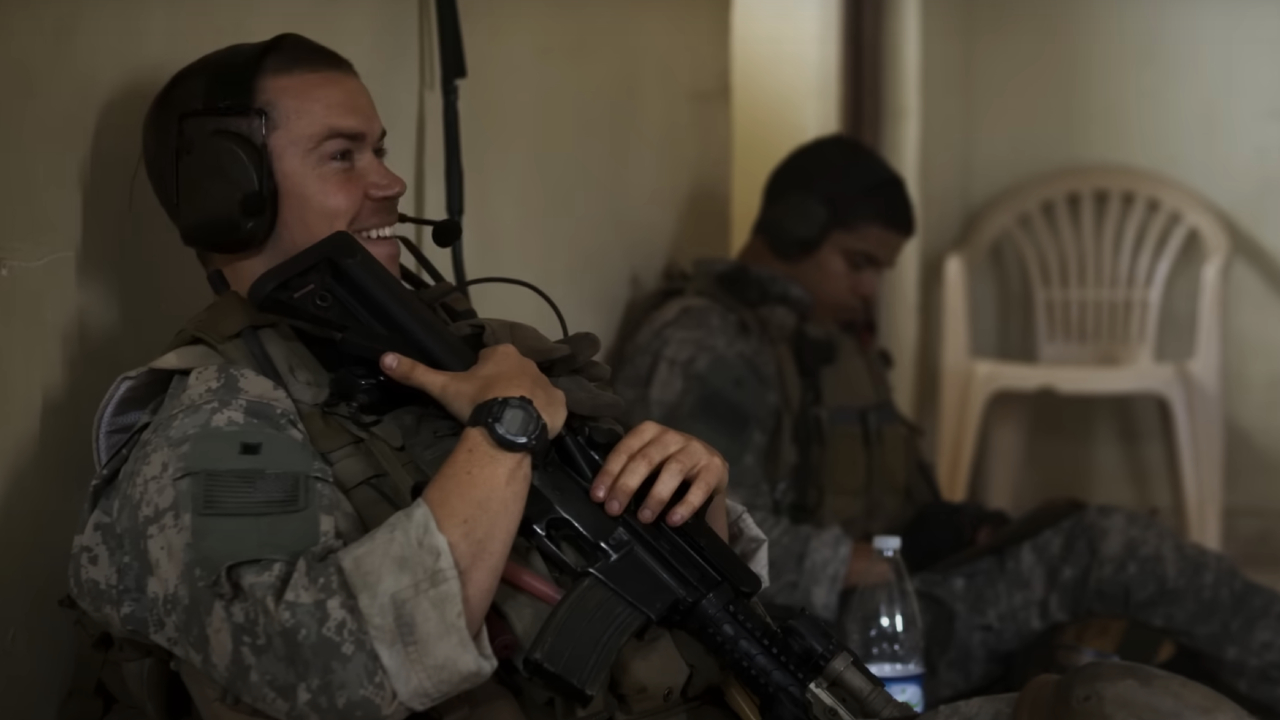Adapting Stephen King's Gramma: What Happens When The Twilight Zone And The Stephen King Universe Collide?
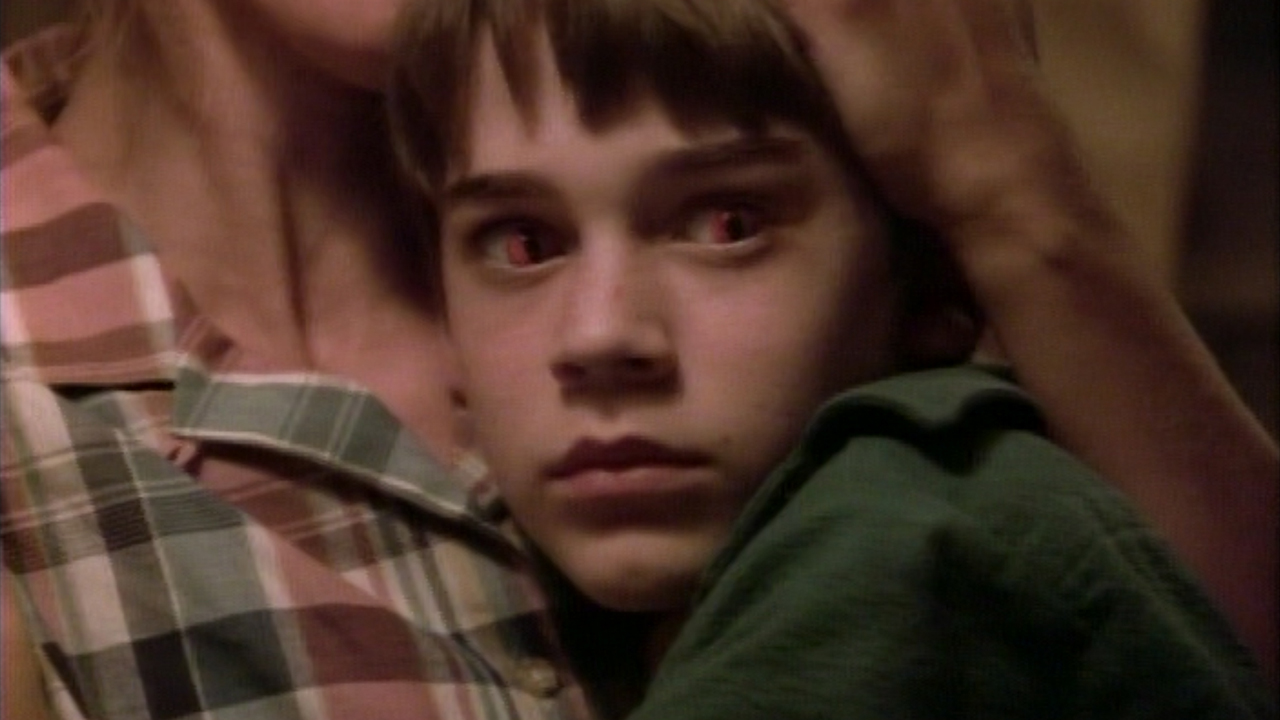
It almost feels redundant to say that Stephen King was influenced by The Twilight Zone because… well, duh. When the original series first aired in 1959, the author was an impressionable 12-year-old, and while the author has expressed a greater personal affinity for The Outer Limits, the show and creator Rod Serling are at the center of their own section in King’s 1981 non-fiction tome Danse Macabre.
Given this deep-seated connection, and the multiple revivals of the classic series that we’ve seen throughout the last few decades, you might expect that there have been multiple crossovers between The Twilight Zone and the ever-expanding Stephen King Universe – but in actuality there has been only one. When CBS made the decision to bring the show back in 1985, an attempt was made to cash in on the author’s popularity, and that started the ball rolling on the short story “Gramma” being adapted as one of the three tales of terror that make up the eighteenth episode of the first season.
Being the connection between two vital parts of genre fiction history, there’s a surprisingly complex history behind it – involving autobiographical elements on the writer’s behalf and some notable names – but how does The Twilight Zone’s “Gramma” compare to the source material, and how has it stood the test of time? That’s what I’ll be exploring in this week’s edition of Adapting Stephen King.
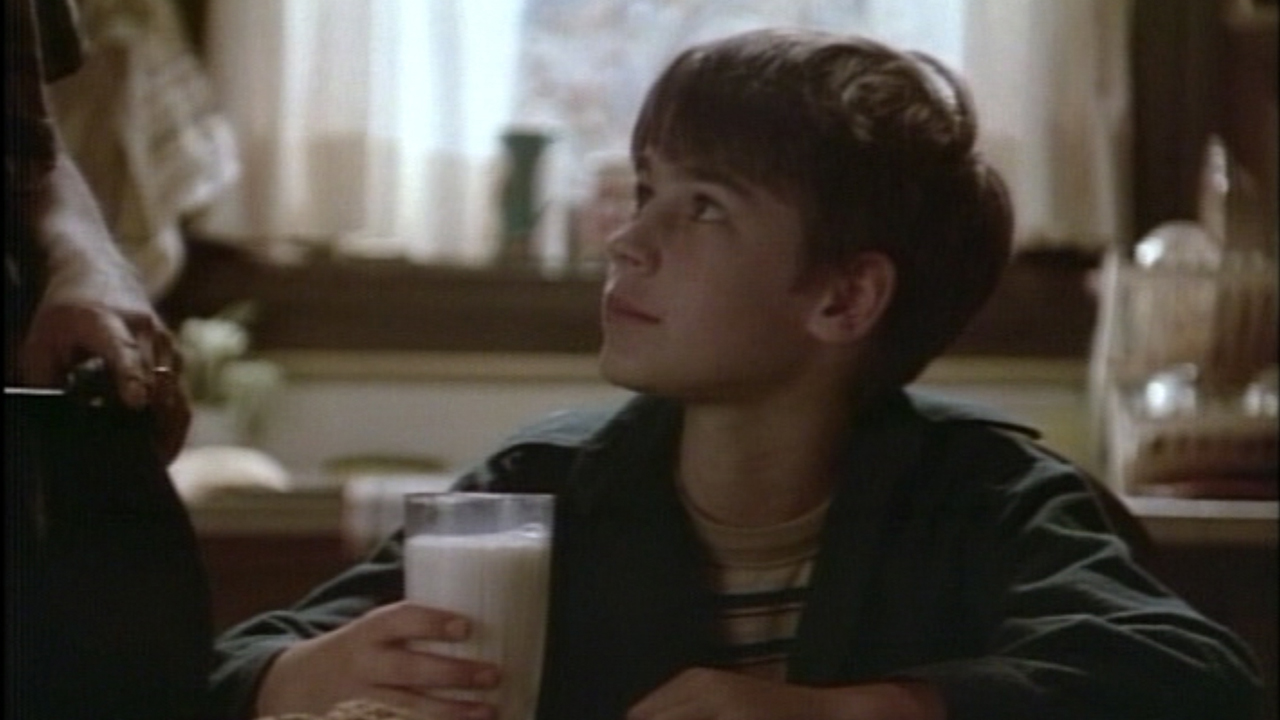
What “Gramma” Is About
Stephen King has used autobiographical elements in his work throughout his career (only a couple more weeks until I get to “The Body”/Stand By Me!), and “Gramma” is a short story specifically inspired by one of the more horrific, traumatizing moments of his childhood. When he was 11 years old, his mother moved their family to Durham, Maine so that she could be closer to and take care of her aging, incapacitated parents. At age 14, according to Stephen King: Art Of Darkness by Douglas E. Winter, the teenager walked into his grandmother’s bedroom and was shocked to discover that she had died.
Speaking about the incident in the Spring 1984 issue of Weirdbook magazine (where the story was first published), Stephen King said,
I remember sitting on the bed beside her, holding my mother's compact near to her mouth because it was something I had seen in the movies. And there was nothing.
A little over a year after its original publication, “Gramma” gained widespread attention as it was included in the 1985 collection Skeleton Crew – and about eight months after that an adaptation aired on CBS as a part of the rebooted The Twilight Zone.
In the story, Stephen King’s surrogate is 11-year-old Castle Rock resident George Bruckner, a brave-yet-innocent boy who finds his mettle tested. When George’s older brother breaks his leg during an afternoon baseball game, his single mother has to go to the hospital – and this means leaving the pre-teen alone with his bedridden, obese, and belligerent grandmother.
CINEMABLEND NEWSLETTER
Your Daily Blend of Entertainment News
George internally hopes that the evening will pass by without incident and that he won’t even have to check on the elderly, infirm woman – but regardless he finds himself haunted by what he knows about his gramma. Throughout his life he has heard stories about her, specifically tales from his aunts and uncles about how she was thought to be infertile for a long time, having a string of miscarriages and stillbirths. She was eventually able to carry a baby to term… but around the same time she was excommunicated from her church and lost her job on account of being in possession of some mysterious books.
After hours pass, George hears a scratching sound from her bedroom and feels compelled to check on her, lest something be wrong and he be blamed for it. When he enters, continuing to remember creepy stories about his second-degree relative, he is shocked to discover that she is dead, going as far as to double-check by holding a mirror in front of her face (just as Stephen King himself had done).
As details from the past coalesce, George is able to put together what is going on – but at the same time discovers that death doesn’t mean his gramma’s horrifying hold over him is over.
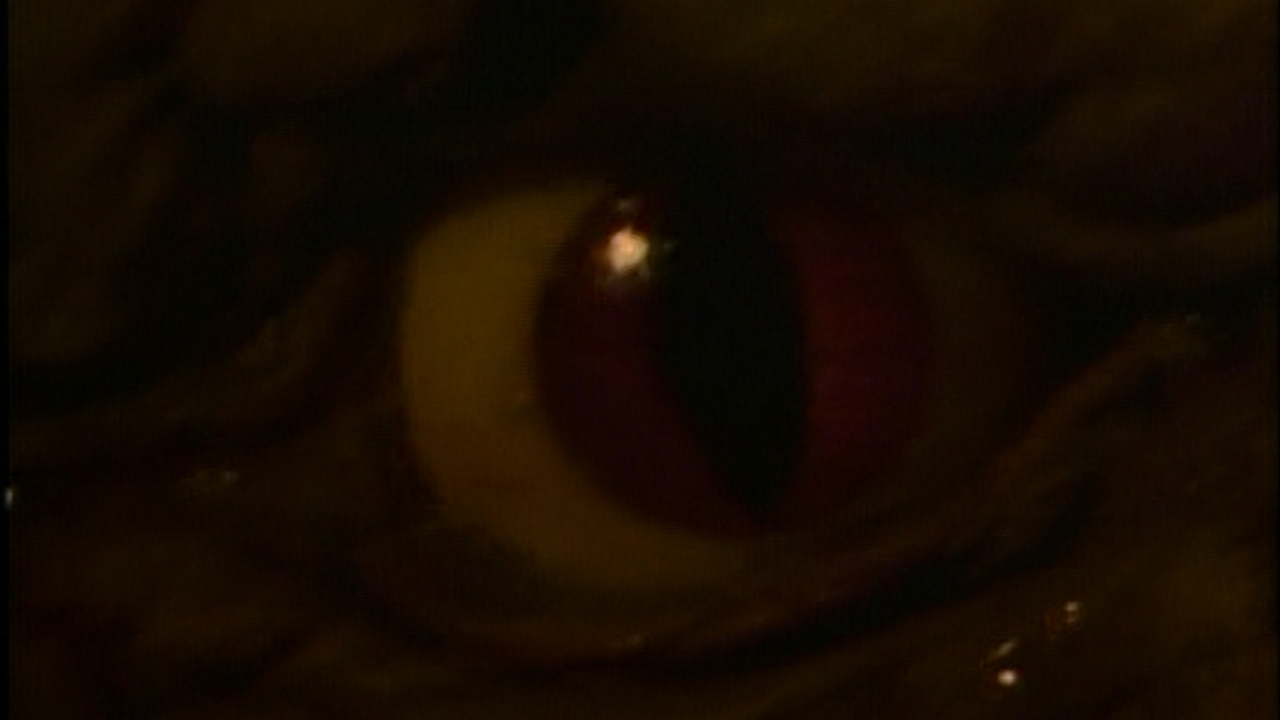
How The Twilight Zone’s “Gramma” Differs From Stephen King’s Short Story
CBS was able to snatch up the rights to “Gramma” for what was apparently not a low price, and that was significant because the story flummoxed the writer’s room of The Twilight Zone – to the point where it seemed that the show would have to write off the expense of the Stephen King story. But turned things around for the adaptation was what could be described as an act of revenge by the show’s staff aimed at creative consultant Harlan Ellison.
Ellison operated behind the scenes of the Twilight Zone revival as a kind of “bad cop” who had the responsibility to deliver all of the harshest notes during script conferences. When nobody was able to crack the script for “Gramma,” he was presented with the material to give notes, but it was, in a sense, a trap. Ellison describes the setup on the DVD commentary track, saying,
They were afraid they were just going to have to write this off and lose a lot of money on this because it couldn’t be adapted. Well, they brought it out, and they said, ‘Here, take a read of this,’ and I read it, and I said, ‘Well, this is an impossible script to do because to do this what you’d have to do is da da da dada dadada.’ And they all started grinning, and they said, ‘Guess what? You’re going to do it.’ I said, ‘No, no, no, no, I was telling you what a writer would have to do!’ And they said, ‘Well guess who that writer [is]?’
As noted by Harlan Ellison, the biggest problem with adapting “Gramma” is the fact that it’s a story where there is no action: it’s about a boy (Barret Oliver) who sits frightened at home alone while his grandmother passes away in her bedroom. That wasn’t workable for a Twilight Zone script, so the writer had to develop an early scare and an actual “event” for the narrative. The results of this effort are the creepy effect that sees George’s shadow leave his body and go into his grandmother’s room, and the sequence where she demands delivery of a cup of tea.
The task of bringing Gramma her tea ultimately has the effect of somewhat relieving the episode’s voice-over delivered exposition. Just like in Stephen King’s story, most of the background information is exposed via the protagonist’s memory (illustrated in the episode by the kid “hearing” the voices of his mother talking with his aunt and uncle), but the big addition in the adaptation is the bit where George discovers a Necronomicon and his grandmother’s journal beneath her floorboards of her room. This allows him the chance to in-the-moment assess that his relative is a witch, rather than simply put together a long-gestating puzzle in his mind.
The Twilight Zone episode maintains key moments like George doing the “fog a mirror” test and feeling compelled to put a sheet over his grandmother’s face – but the ending is also considerably toned down. It is shown in the final shot that the boy’s eyes have changed, indicating that he has either become possessed by his grandmother or has taken on her powers, but Stephen King’s story goes much further. Not only does George kill his aunt by hexing her and giving her an aneurysm (she being an individual who knows how to suppress his powers), but he also makes sinister plans to get back at his older brother for years and years of bullying.
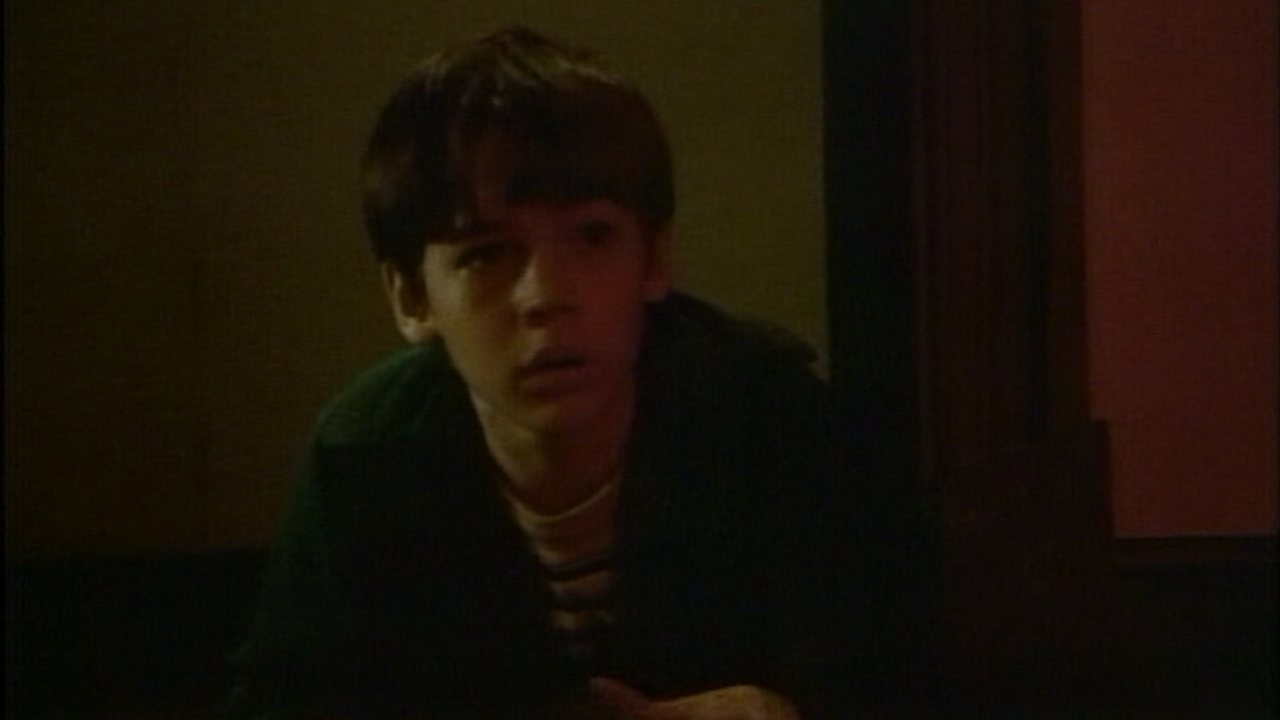
Is It Worthy Of The King?
For being a third of an episode in a low-budget, rebooted anthology series, The Twilight Zone’s “Gramma” is an adaptation with a shocking amount of clout in its history. In addition to having sci-fi icon Harlan Ellison penning the script, the show initially had The Exorcist’s William Friedkin attached to direct (before a private family matter forced him to drop out); it features Barret Oliver in the near-immediate wake of his breakout role in Wolfgang Petersen’s The NeverEnding Story; and it even marked Piper Laurie’s second performance in a Stephen King-related project after Carrie (she provides the voice of the titular witch).
All of these elements make “Gramma” impressive for what it is, and according to Ellison the Twilight Zone episode was on the list of King’s favorite adaptations of his own work for a spell – but at the same time it’s not exactly a story that time has treated all that gently. It’s not by any stretch bad, but like the “Word Processor Of The Gods” episode of Tales From The Darkside it is more forgettable and average than anything else.
It’s easy to appreciate the creative skill that went into the making of it, particularly its ability to maintain the bottle episode quality of the narrative while still expanding on the action, but the material still has hindrances that prevent a particularly special direct translation from being made. Stephen King’s short story has the ability to bring Constant Readers into the mind of George as he internally freaks out about being home alone, but when “Gramma” is brought into live-action all of that mental conflict has more of a “telling, not showing” vibe.
This in mind, “impossible” really is a properly used word by Harlan Ellison to describe the adaptation, as there is an inherent catch-22 involved: either you dissipate the all-important atmosphere by cutting away from the action via flashbacks, or you alter the story and use every clunky exposition delivery method available to keep the events in one location.
Even with the limited scope of the story and resources available for the show, there are still laudable stylistic qualities to the production – though that list doesn’t include the look of Gramma herself, who in 2021 just looks like an actor in a bad rubber suit. Co-directed by Harlan Ellison (who is uncredited) and Bradford May (the Twilight Zone’s cinematographer, who got the gig after William Friedkin had to leave), there are particular shot calls in the episode that still look great today, such as the aforementioned shadow trick, and the use of high angles to highlight George’s isolation. Even when the plot is underwhelming there is still some wonderful visual storytelling unfolding.
In a vacuum, I’d say that “Gramma” is a story that doesn’t necessarily need to be adapted again, as The Twilight Zone’s treatment is a perfectly serviceable version of a story that isn’t what could be deemed an exceptional part of the Stephen King canon – but that would be ignoring the fact that a remake already exists. Given that Peter Cornwell’s Mercy wasn’t released until 2014, however, that means you’ll have to wait until next July for this column’s dissection of that movie and how it compares to the source material.
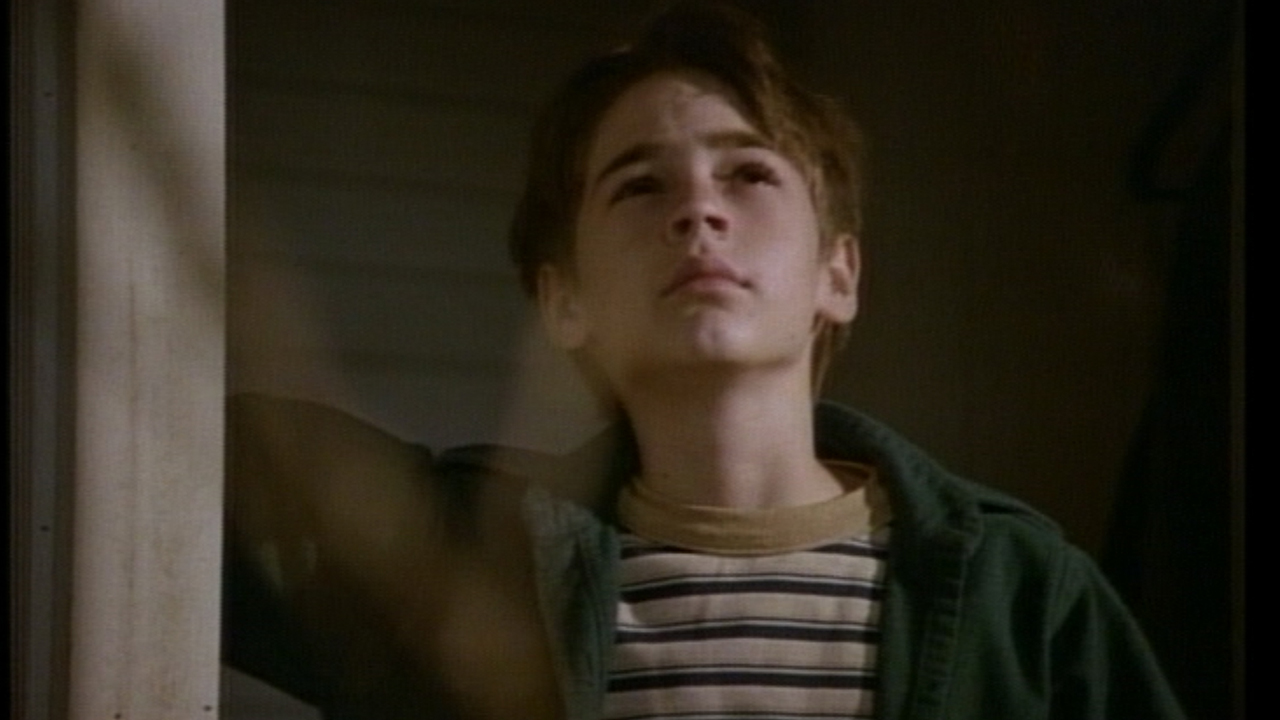
How To Watch The Twilight Zone’s “Gramma”
Ready for a bummer? While it’s easy to find streaming episodes of the original Rod Serling-hosted Twilight Zone, and the rebooted version with Jordan Peele, the 1985 edition of the classic horror anthology series is not available anywhere online (legally, at least). What’s more, CBS has not yet given the show the HD treatment in any capacity, as there is also never been a Blu-ray produced. The only way to presently watch the “Gramma” adaptation by Harlan Ellison is by purchasing the first season on DVD – either individually or in the Complete Series box set.
Looking ahead, you may now be able to faintly hear the blissful rock n’ roll sound of AC/DC blaring, as Adapting Stephen King will next be digging deep into 1985’s Maximum Overdrive – a big screen version of the short story “Trucks” that is famous in part for being the only film King has directed. It will be featured in the CinemaBlend movies section next Wednesday, so be sure to check it out, and for now click through the banners below to find all of the previous installments of this column.







Eric Eisenberg is the Assistant Managing Editor at CinemaBlend. After graduating Boston University and earning a bachelor’s degree in journalism, he took a part-time job as a staff writer for CinemaBlend, and after six months was offered the opportunity to move to Los Angeles and take on a newly created West Coast Editor position. Over a decade later, he's continuing to advance his interests and expertise. In addition to conducting filmmaker interviews and contributing to the news and feature content of the site, Eric also oversees the Movie Reviews section, writes the the weekend box office report (published Sundays), and is the site's resident Stephen King expert. He has two King-related columns.


